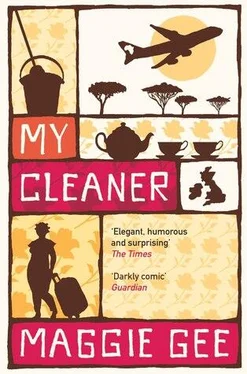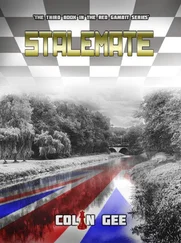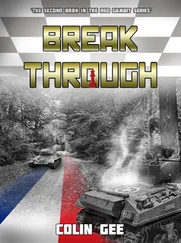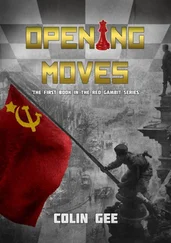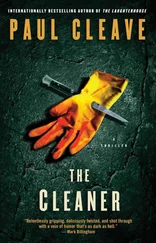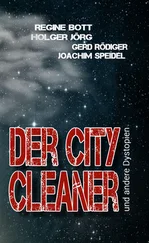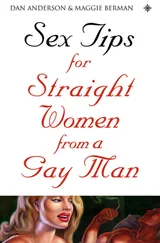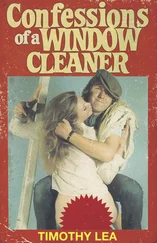Vanessa shuts off. They will live, or die. She cannot always take control of things. At least, now, Justin is finding his feet, in however feeble and hopeless a way. So if she did die, it would not be so awful. And perhaps her novels might survive in libraries. And her cousin would know that she tried to come back, and did not entirely forget her family.
Her mind wanders away to Beardy. Or Alex, to give him his proper name. He did say that he admired her novels. Of course he was aggressive, as many men are, but in his short story, he had described her as ‘tensile, like a dancer. And ‘in a good light, beautiful’. Vanessa is feeling rather old today, because she is anxious about going to the village, where her coevals may look younger than her, where her pretty cousin may still be prettier, where everyone who once loved her may have vanished, where people may think her a sad old stick…
But a man in London thinks her beautiful. Reads her novels. Believes in her.
The car swerves left, but she knows they’ll survive.
Vanessa arrives at her aunt’s in a state. Things went wrong once they left the motorway. Here was the straight, noisy main road that had always cut the village in two, and then the patchwork of lanes on the map she expected to know like the lines on her palm. But she recognised nothing. They drove in a circle, and ended up back on the main road.
She found her landmarks: the steeple, the old school, perched like toys athwart the rushing traffic. But they didn’t help her when all around them was a sprawl of raw red, which meant nothing to her, small modern houses with small tight gardens spread along the lanes like beads on a necklace. Everything looked different. Where was the centre? There didn’t seem to be one any more. She tried to rotate her brain, but all it did was make her feel giddy. For a moment she thought it was the wrong village, and stopped a cross cyclist who grunted the name, and it was her village, although he was Indian. “Where are the shops?” she called after him, pleading, although he was already two metres away. “What shops?” he asked, and grinned unpleasantly. Evidently he had not understood her. The traffic was so loud that he probably couldn’t hear. “Garage,” he called back over his shoulder. “Over there,” but Vanessa was too deafened to hear him.
But they did find the garage — at least there was a garage. It sold sweets, papers and birthday cards. She recognised, with a leap of the heart, the glitter-scattered card that Lucy had sent her. The man behind the till had a local burr and was probably not much older than Vanessa. Or maybe around the same age as her. She showed him the address, which she had written down, and he scratched his head, as if it meant nothing, but when she asked for her cousin by name, his face lit up. “Oh, Lucy Henman! I’ve known the Henmans all my life. The old man isn’t doing so well. And who may you be?”
“Vanessa Henman.”
“Oh, I heard about you. Didn’t you go off to Cambridge? Course I was only a kid at the time.” He gave her directions, and touched his cap, and she would have felt better if they had then found it, but Mary seemed obstinate and obtuse and didn’t listen carefully to her instructions, so they ended up driving in more circles.
Then Vanessa focussed. It was there, like a dream. “Stop, Mary! We’re here!” The old gate, the blue door.
“Miss Henman, you said we were here before.”
But this time she is right. It is the same house. Yes, that is her Aunt Isobel’s house, the house where she has always lived with Uncle Stan. It looks different because the trees have grown up, two great dark yew trees which obscure the windows and make the house look smaller than before. Not that it has ever been a very big house. Vanessa’s village does not have big houses.
Lucy is putting up two of her daughters, so they have to stay with Lucy’s parents. The front door is the same peeling sky-blue it used to be when Vanessa was little. They ring the doorbell. Inside, there is a crash of furniture, and then the slow movement of something living, a shuffle and drag of someone coming to the door, and the minutes exacerbate Vanessa’s nerves, but then the door opens, and there is her aunt, a hundred years older, but wreathed in smiles, her very own aunt, and this is her welcome, she’s enfolded in laughter and soft, solid flesh that smells of lilacs, and something medical.
“Nessa, dearie. How lovely to see you. We’re all at sixes and sevens here. You know Stan’s not well. He sometimes knocks things over…Who’s this?” She peers puzzledly at Mary, then says, “Oh yes, nice to see you, dear, Lucy did say you would be bringing a friend, but she didn’t mention — I see, never mind. Come in, come in. You’re too thin, Vanessa. We’ll have to feed you up. Of course we hoped that young Justin would come—”
So they are swept in, and back in time. To smaller rooms and narrower stairs. To unshaded bulbs and yellowed paintwork, to thin, cheap towels in deck-chair stripes. Here they are still living in the 1950s. Nothing, it seems, has been thrown away, though they do have a huge flat-screen television. “We rent it, actually, we ought to buy it but you know how it is, we never quite have the money.” Uncle Stan watches it most of the time, and his contribution to the lunchtime conversation is a lengthy digest of the plots of the soaps, which he delivers anxiously, in his soft new voice, as if his own life is not good enough.
“It’s the effect of Parkinson’s, the way he talks,” whispers Isobel, in the dark kitchen, which seems like a period film set to Vanessa. Old electric cooker with solid hot plates, enamel bread-bin, little calendar with spaniels, glossy ears drooping over circled dates next to which are pencilled ‘DOCTOR’ or ‘HOSPITAL’. “He’s making a big effort, but he’s very tired. They don’t think he’s got long to go—” And although her aunt speaks matter-of-factly, as if of a race with a gallant jockey, Vanessa realises it’s death she means, death that hovers by the stained formica underneath the wall cupboard with its layers of cream paint. Suddenly that cupboard is very familiar. Was it where her aunt kept homemade ginger biscuits? Sweet and tacky, misshapen as puddles. The taste returns to her, buttery, hot. “—But it’s bound to buck Stan up, seeing you. And your friend. She’s very nice. She seems just like us. You know we’ve never had an African in the house. ”
It is a shock to Vanessa that they are poor. Oddly enough, she had not expected it, as if the wash of prosperity in London would have flooded over and found every village and changed the lives of the people here. In fact, they are no better off than they were. Indeed they must be worse off, since everything’s the same, just older and darker than before. This house has no videos, or dimmer switches, or mixer taps, or bathroom suites. There is the same curved bath, with rusted feet, which they could have sold for a fortune in London, and the separate loo, with its high dark cistern. The chain is mended with ancient string.
“I’ll show you to your room,” Aunt Isobel says, after they’ve drunk cups of sweet milky coffee. “Oh, don’t you take sugar?” she asks, too late, spotting Vanessa’s wince of distaste.
“It’s fine, Aunt Isobel, it’s just that I get toothache. No, never mind, I’m enjoying it.” And she is, in a way. It takes her back in time; her mother used to make the same mild, sweet fluid.
The two of them follow the old lady upstairs, checking themselves at every step as she heaves and pants her way to the top, then turns and smiles at them; one tooth is broken. “Slow and steady wins the day.”
And then Vanessa has her second shock. For she and Mary will be sharing a room. Of course, she should have expected it. The house is small, and there are only two bedrooms, for the one where Lucy and her sister once slept has now been turned into a junk room. Isobel explains this as she opens the door to a small bright room with a double bed.
Читать дальше
